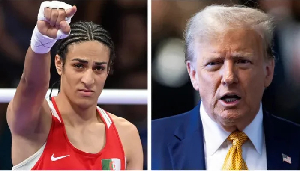Business News of Monday, 9 April 2018
Source: thefinderonline.com
Business confidence high - Institute of Economic Affairs
The Business Confidence Survey (BCS) conducted by the Institute of Economic Affairs (IEA) has revealed high increase in the performance of businesses in 2017, a clear departure from an ailing business environment in 2016.
This has raised the hopes of captains of industry that this year will consolidate gains made last year.
According of the report of the survey, the performance of businesses in both the financial and non-financial sector improved in the second half of 2017.
71% of financial sector businesses performed better
It said 71 per cent of businesses surveyed in the financial sector performed better in the second half compared to 58 per cent recorded in the first half of 2017.
44% of non-financial businesses reported progress
It indicated that 44 per cent of businesses surveyed in the non-financial sector performed better in the second half compared to 27.7 per cent recorded in the first half.
51% says business environment improved
The report said 51 per cent of businesses indicated that the business environment improved in the second half of 2017 compared to 44.95 per cent recorded in the first half.
It indicated that 46 per cent of businesses interviewed better in the second half of 2017 compared to 31 per cent recorded in the first half of 2017.
83% of businesses say environment would improve in first half
The IEA indicated that 83 percent of businesses interviewed were optimistic the business environment would improve in the first half of 2018.
77 percent expect the economy to grow in 2018
The report indicated that the optimism expressed by businesses could be attributed to their expectations on the macroeconomic environment as 49 percent of businesses expect the exchange rate to be stable; 48 percent businesses expect inflation rate to reduce; 53 percent businesses expect average lending rate to reduce and 77 percent expect the economy to grow.
Agric transformation
The report called for agriculture transformation to give credence to the development of the raw materials sub-sector in Ghana.
Local firms to source raw materials locally
The IEA also encouraged local firms to source for a greater percentage of their raw materials locally for their production activities.
Govt told to step up expenditure
The report called on the government to stimulate demand by stepping its expenditure to boost aggregate demand.
Fast-track One District, One Factory and “One Village, One Dam
IEA urged the government to quicken the implementation of its flagship programmes “One District, One Factory” (1D1F) and “One Village, One Dam” (1V1D) initiatives to create the necessary backward and forward linkages with industry.
Impose special taxes on selected imports
It called on the government to impose special taxes on selected imports for which the country had competitive advantage and to protect the country's critical local industries.
Reduce utility tariffs further
On taxes and utility charges for businesses, the report said there was the need for further reduction in utility tariffs because it has the potential to spur production.
It noted that there was the need for further probing to identify specific taxes that tend to have negative effects on local businesses and determine appropriate measures to reduce their statutory.
Sustainability of relative stability of exchange rate
The report called on the government to ensure that the relative stability of the exchange rate now was sustained over a long period of time and that value should be added to exports to improve foreign exchange earnings.
Banks to make formula for base rates transparent
On high cost of credit to businesses, the report called on the Bank of Ghana to encourage banks to make transparent the formula used to determine the base or reference rate.
Call for new incentives to make financial savings attractive
It also called for the creation of incentives to make financial savings attractive to reduce cost of funds to the banks.
Need to deal with non-performing loans
The IEA report said there was the need to deal with high non-performing loans to reduce high lending rates and forestall declining credit to the private sector.
Common External Tariff
It urged the government to further ensure the full implementation of the Common External Tariff (CET) that grant zero per cent tariffs on imported raw-materials.
The BCS published bi-annually since 2014 is independent, objective and conducted to supplement the surveys conducted by the Bank of Ghana and the Association of Ghana Industries (AGI).
According to IEA, their decision to conduct the BCS is in recognition of the private sector’s role as the engine of growth.
The IEA 2017 BCS focused on business performance in the first and second halves of the last year and highlighted the expectations of businesses for the first half of 2018.
It sampled businesses from three key sectors of the economy namely the agriculture, industry and services sector.
Companies were selected based on their relative contribution to Gross Domestic Product (GDP) across four key industrial regions; thus, Greater Accra, Ashanti, Eastern and Western Regions and the response rate represented 85 per cent of targeted samples of 200 businesses.












